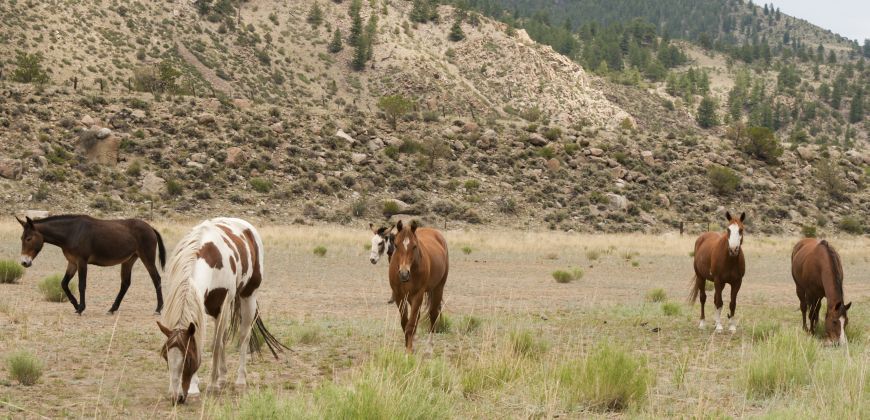
Can we select and breed horses for better performance and better health? Can we create probiotic supplements for horses? We don’t have those answers yet, but a new faculty member in Colorado State University’s Equine Sciences program is working to find them. Stephen Coleman, an assistant professor of equine sciences who focuses on equine breeding and genetics, is one of the latest additions to the Equine Sciences and Breeding and Genetics programs in CSU’s Department of Animal Sciences.

“We are excited to have Dr. Coleman join the faculty of Equine Sciences here at CSU” said Dr. Jerry Black, a CSU veterinarian and director of the Equine Sciences program. “He brings a wealth of knowledge in equine genetics to the program that will lead us in research and education in this field for years to come. Our immediate goal is to have Colorado State University Equine Sciences recognized as a global leader in equine genetics.”
Importance of genetics
Genetics have always played an important role in the relationship between people and horses. Ongoing efforts to study and understand the genetics of horses have been greatly improved with the sequencing of the horse genome in 2007 and the research published in 2009 which includes Coleman as an author.
Coleman is working to identify the genetic basis of traits which are important to equine health and performance. Ultimately, he wants to provide a set of genetic resources for the horses that can be used by veterinarians, owners and other researchers. To this end, Coleman along with the Breeding and Genetics group will be offering the first short course on Equine Genetics, with emphasis on genetically based mating decisions.
Improving horse health and welfare
Coleman is also interested in developing a new understanding of microbiomes and metagenomics in horses which could someday lead to creating probiotics for horses similar to those that are often recommended for humans. These gut probiotics could lead to improvements in horse health and welfare.
“Horses – like humans and other animals – have almost 10 times as many bacterial cells living on them as other cells in their bodies, so probiotic treatments have potential to be especially useful,” said Coleman.
A ‘benchmark’
For Coleman, joining CSU’s Equine Sciences program allows him to be part of a group committed to enhancing our understanding of the role of animals, especially horses, in agriculture. He describes the Equine Sciences program at CSU as a “benchmark” for other equine programs across the country.
In addition to teaching a course in equine genetics this coming spring, Coleman has also taken an interest in the equine safety and handling courses offered by the program. “I am excited to be part of such a vibrant program that not only has a strong research component but also really cares about the well-being of the horses in our care and prepares students to care for horses beyond their time at CSU.”